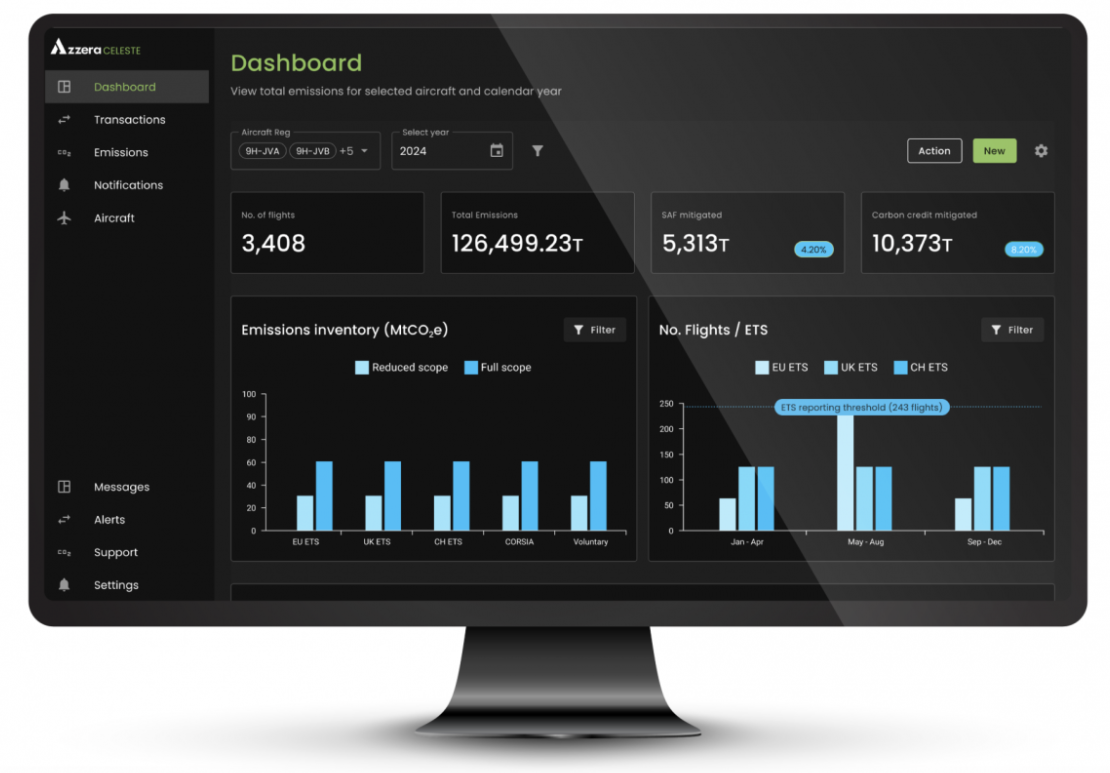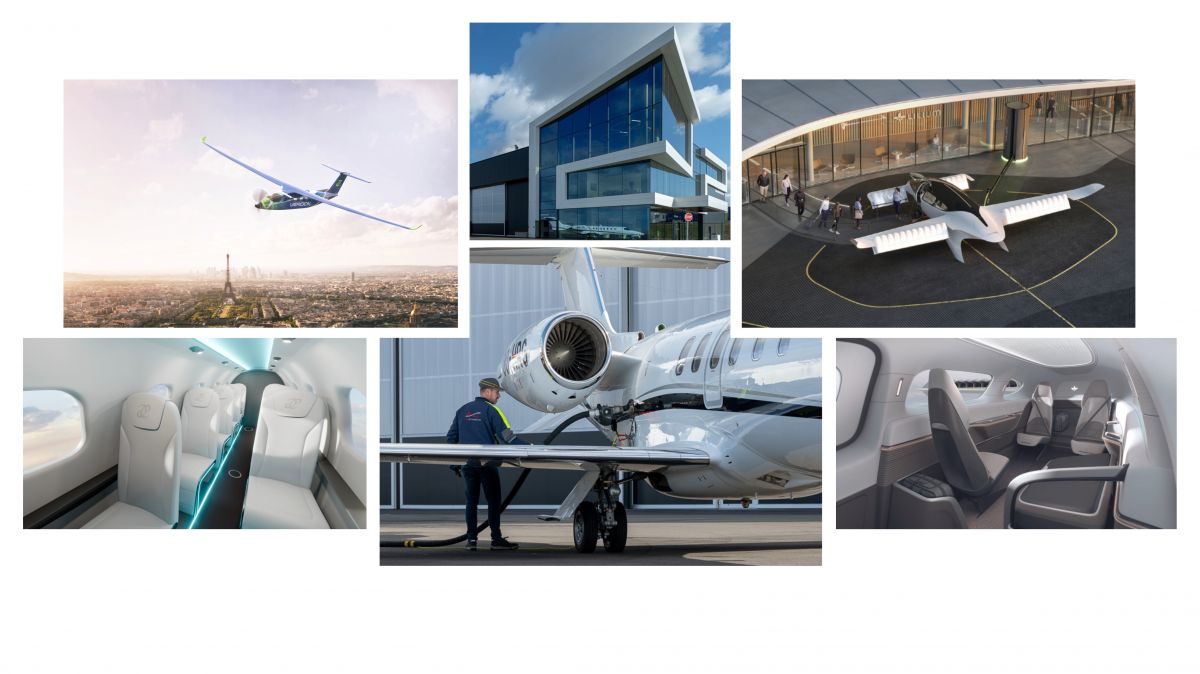Fly sustainable
Being a member of EBAA, we're constantly working on new projects to expand our business and to offer our clients innovative travel solutions. Like many other companies and airlines, we contribute to a sustainable and healthy future, both socially and ecologically, in line with the climate commitment. We realize CO2 offsetting is an important step for climate change, but it is not the only solution. Much smaller things could contribute in developing a sustainable environment as well and shouldn't be forgotten, therefore we aim to think global but start to act local. From the bottom up we wanted to intensify our actions in reducing the ecological footprint of our airline.
Two major contributions to this commitment could be found in our ‘RISE-project’ and ‘ASL Fly Sustainable’-program.
Business Aviation & Sustainability
Business Aviation has always been at the forefront of improving its sustainability practices and creating a greener future for the wider transport sector as a whole.The Business aviation community is working towards a more sustainable future in different ways. Business aviation has the ability to connect remote regions and communities, bringing economic development to places otherwise inaccessible. The industry is also dedicated towards reducing its environmental impact through the use of technology, infrastructure and operational improvements, alternative fuels, and market-based measures.
Responsible Initiatives
for a Sustainable Environment
With the ‘RISE’ -project we aim to reduce the ecological footprint of our company and thus contribute to a cleaner, healthier world."
The ASL Group is planning to offset the CO2 emissions of its aircraft by investing in ecological projects. As our ambitions extend further and we want to contribute more in the field of ecologically responsible entrepreneurship, the RISE project arose. It stands for ‘Responsible Initiatives for a Sustainable Environment’ and includes a number of concrete measures and actions to reduce the ecological footprint of our airline. For example, plastic on board of our aircraft will be reduced to a minimum and the waste streams will be separated more effectively and selectively. We also invest in sustainable and preferably fair trade products on board, such as food, drinks and personal care products.
In addition, our aircraft will gradually switch to a new type of greener fuel, called Sustainable Aviation Fuel (SAF) - this is a multi-year plan but since 2024 available via SAFc's - Sustainable Aviation Fuel Credits (found out more below). Additionally, a number of fuel-saving measures such as shorter and more efficient flight paths are in place.
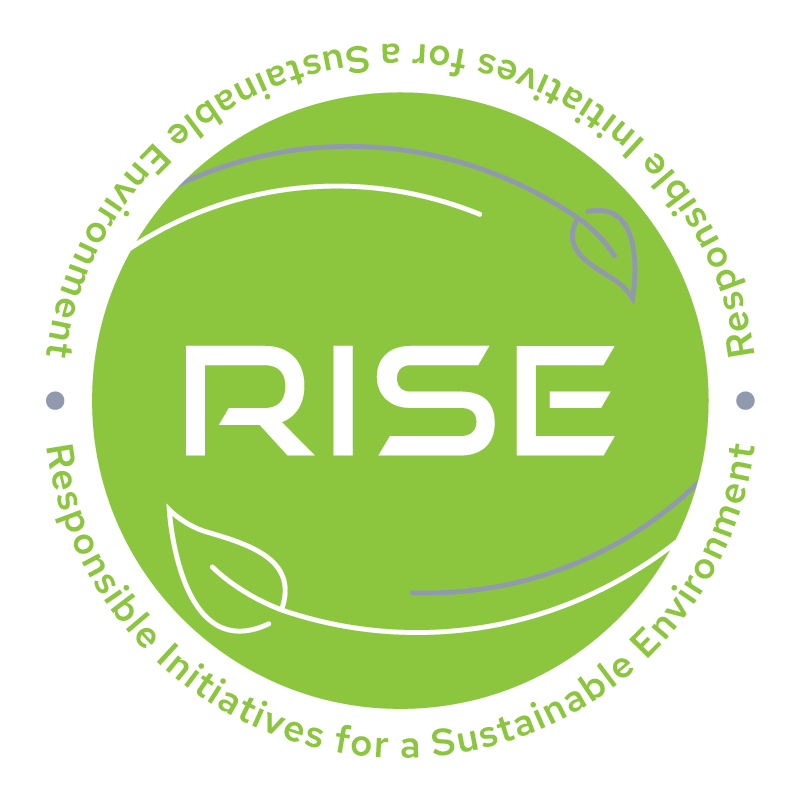
Climate Neutral Group Impact report 2021
Based on an analysis of the Climate Neutral Group, working for 15 years already on climate problems and stimulating climate-neutral entrepreneurship, the processes responsible for our airline’s CO2 emissions, they have drawn up a roadmap and a number of green ‘key performance indicators’ to reduce these emissions. This allows us to continuously evaluate and adjust our actions and efforts. By doing so, we hope to make a meaningful contribution to a sustainable future and a healthier world.
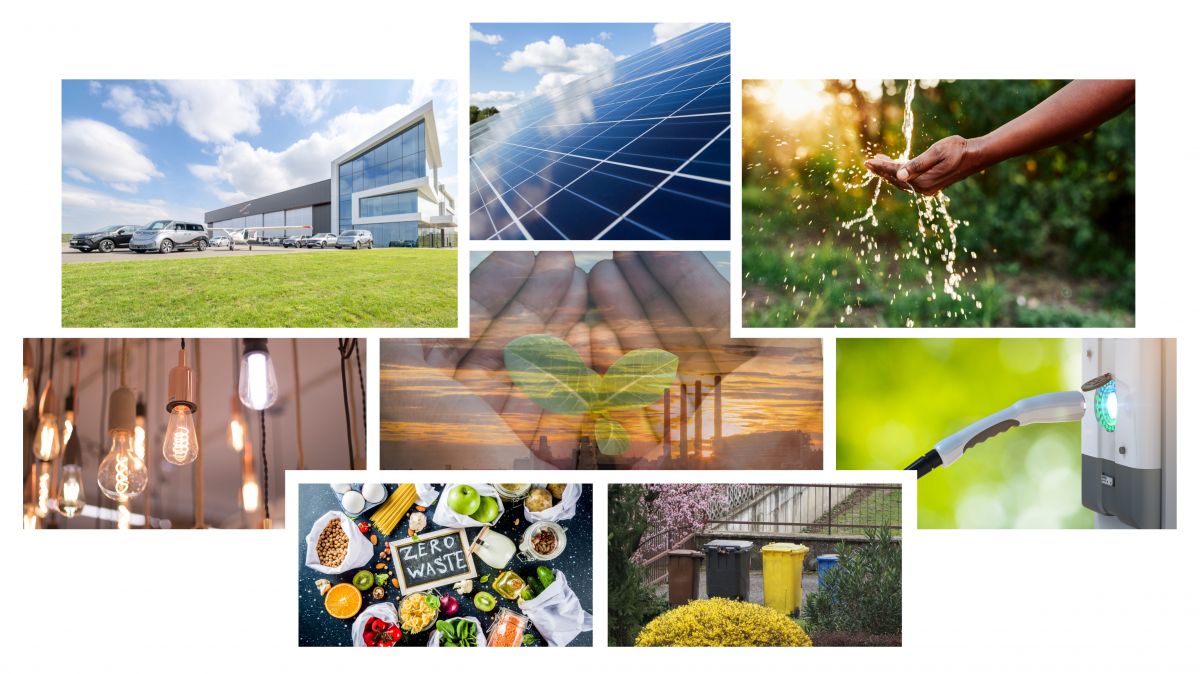
RISE is a company-wide project which encompasses a wide range of specific action plans, primarily aimed at:
1. Limiting, reducing, where possible, and offsetting the remaining CO2 emissions generated by the company activities;
2. Reducing the amount of waste generated by the company activities;
3. Using socially responsible, ecological and fair trade products on board its aircraft;
4. Promoting local producers and local suppliers for the deliveries of goods and consumables;
5. Implementing waste-sorting and energy saving measures throughout the company's premises as well as on board its aircraft;
6. Promoting the use of sustainable energy and sustainable aviation fuel when commercially available.
One of the goals of the RISE project is to take our responsibility and offset the remaining CO2 emissions generated by the company's global activities (both in the air and on the ground), in addition to obligations of the ongoing global ICAO CORSIA program and European EU-ETS (Emission Trading System)
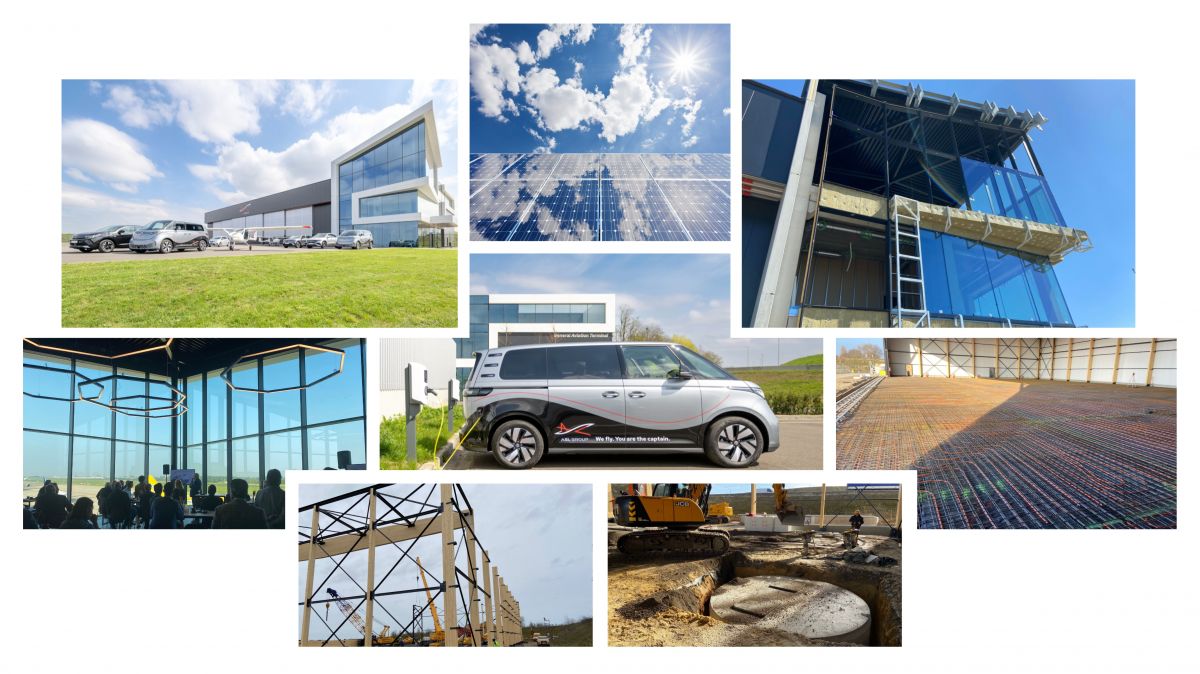
Modernizing our facilities
2021 - Opening of brand new sustainable General Aviation Terminal in Liege, the first of many ecological renovations
Gradually, ASL Group is modernizing its premises with the latest innovations available on the market. Our new General
Aviation Terminal in Liege for example is equipped with numerous ecological innovations such as self-regulated floor heating, automatic lighting, a self-sustained water system to wash and maintain our fleet, heat pump, wooden hangar structures to capture CO2, automatic ventilation, innovative insulation, solar panels etc.
Besides our facilities at Liege Airport, we also introduced these innovative features at our new facilities in Kortrijk-Wevelgem, Antwerp Airport and renovated our headquarters in Hasselt - Belgium. All these features will be implemented throughout all our home bases by time, making the entire organization more sustainable.
Last but not least, we're making a shift towards a 100% electric company (crew) car fleet.
By now we've enrolled over 20 electric cars, 1150 solar panels, 22 charging stations and 2 electric aircraft (Pipistrel Velis Electro) and numerous operational partnerships.
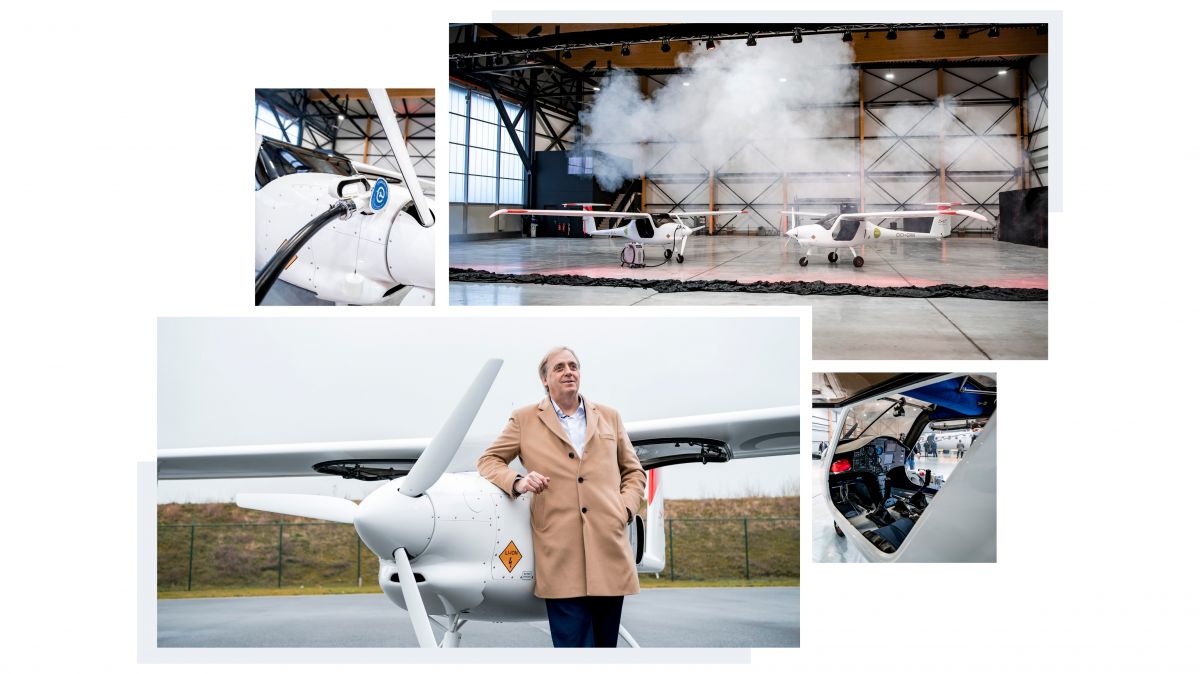
Pipistrel Velis Electro
18/12/2021 - "We unveiled our two newest acquisitions, two Pipistrel Velis Electro electric planes"
Registered respectively OO-GRN and OO-ELC, are 'the only ones certified in the world' and are presented for the first time in Belgium. They will be used at the ASL Academy for training of young student pilots. Philippe Bodson, CEO of ASL Group explains that these planes, which cost nearly 200,000 euros, can only fly for one hour on a full battery, but that is enough to train young pilots in basic manoeuvres. These manoeuvres have the biggest impact on the environment, both in the air as on the ground since it requires a lot of energy and thus produces the most exhaust & noice. Step by step the industry requires investments in order to get innovative engineering in the air. This project emphasizes above all our ambitions to be a pioneer in search of sustainable aviation.
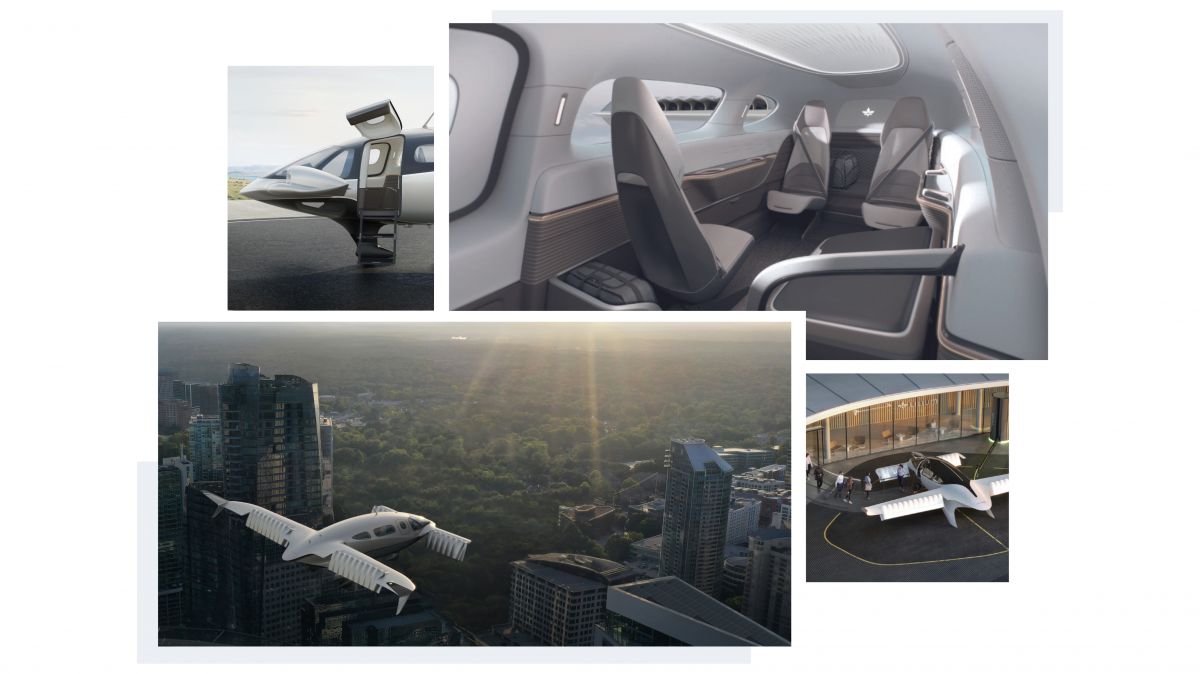
Lilium EVTOL
19/01/2022 - "ASL Group selects Lilium to provide sustainable air mobility to its customers"
ASL Group has signed an agreement with Lilium N.V., developer of the first all-electric vertical take-off and landing (“eVTOL”) jet, to provide sustainable air mobility to its customers in Benelux. The Group intends to purchase an initial 6 Lilium Jets and will cooperate with them to develop a network of landing sites in the Benelux.
“We are already the owner of the first electric aircraft in Belgium and will now replenish our fleet with the Lilium Jets”, says Philippe Bodson (owner and CEO of ASL Group). “Our company is constantly seeking new ways to operate responsibly and contribute to a healthy future, both socially and ecologically. The Lilium Jet is a great opportunity to provide better value to our customers in a sustainable way. With zero operating emissions, vertical take-off landing capability and a spacious premium cabin, Lilium represents the best option on the market.”
Between 2015 en 2020, Lilium has had its five-seater EVTOL prototypes in the air and the jet conducted over 100 manned and unmanned flights. The new seven-seater jet will range initially up to 280 kilometers, which might be enough to get passengers from one side of Belgium to the other or travel around in the BeNeLux, but we know the technology improves rapidly. Ideally for positioning flights connecting with long range alternatives or remote business meetings in busy cities. Besides one pilot, the Lilium is able to fly three passengers in 'club mode', six passengers in a traditional configuration or can be used as a short-haul freighter when stripped of seating.
Earliest operations are to be expected as from 2026.
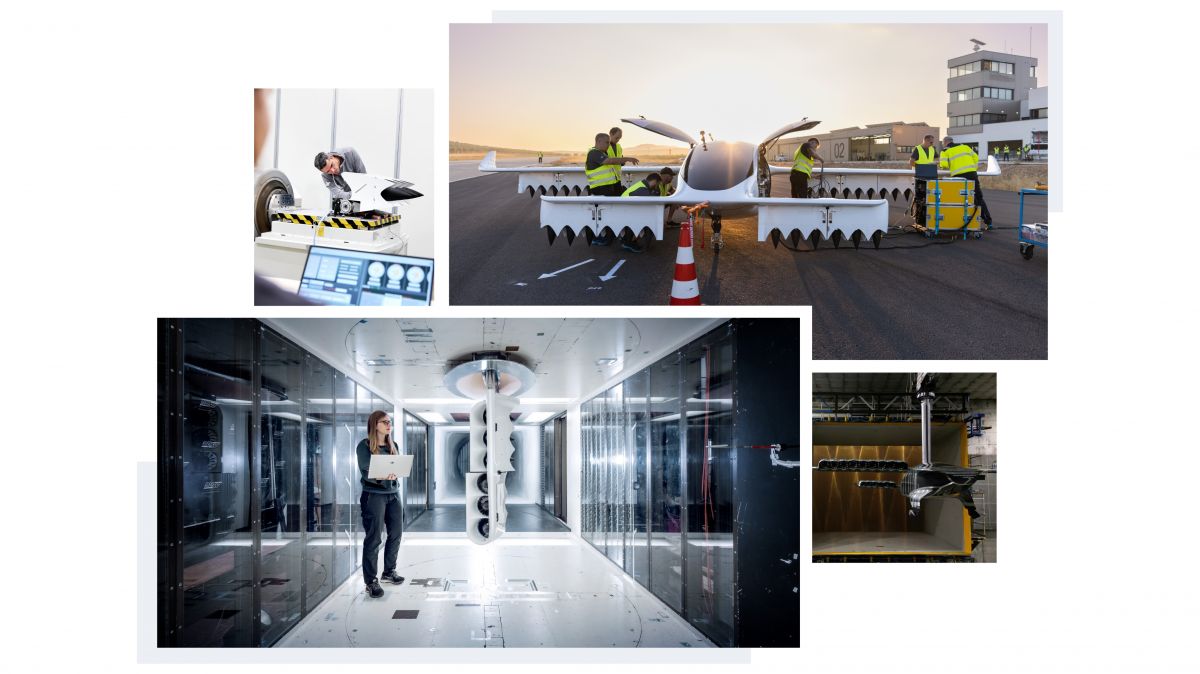
Vaeridion
16/08/2023 - "Cooperation Agreement with Vaeridion to provide sustainable air mobility for the business aviation sector"
Vaeridion GmbH, a Munich based company that is accelerating the green transformation of aviation with a small electric aircraft that will be certified and delivered before 2030, and ASL Group, have signed a cooperation agreement to realize commercial battery electric flight this decade, leveraging ASL's extensive operational experience, network and knowledge combined with VÆRIDION’s cutting edge technology, aircraft design and analysis tools.
"ASL Group aims to be at the forefront of sustainable aviation developments. Amongst others we were the first to operate fully electric Pipistrel training aircraft in Belgium and we continuously look for ways to further reduce our ecological footprint. Our collaboration with Vaeridion will contribute to making electric flying a reality in an important segment of our business activity, namely short-haul trips in the four to nine seater aircraft segment", says" Philippe Bodson - Chief Executive Officer - ASL Group.
“Today’s business aviation sector is under large pressure to become more sustainable but has also always been an early adopter of new technology. We believe that business aviation will be among the first to adopt electric flight. Joining forces with one of Europe’s leading business aviation operators - ASL Group - will enable us to bring the Microliner design forward, leveraging ASL’s operational know-how and understanding of the passenger’s needs.” Ivor van Dartel – Co-Founder and Chief Executive Officer - VÆRIDION
The cooperation is intended to create synergies between the manufacturer and possible future operator of battery-electric microliners. The foreseeable Market Size for eCTOL aircraft will range from 5.000 to 10.000 aircraft by 2040.
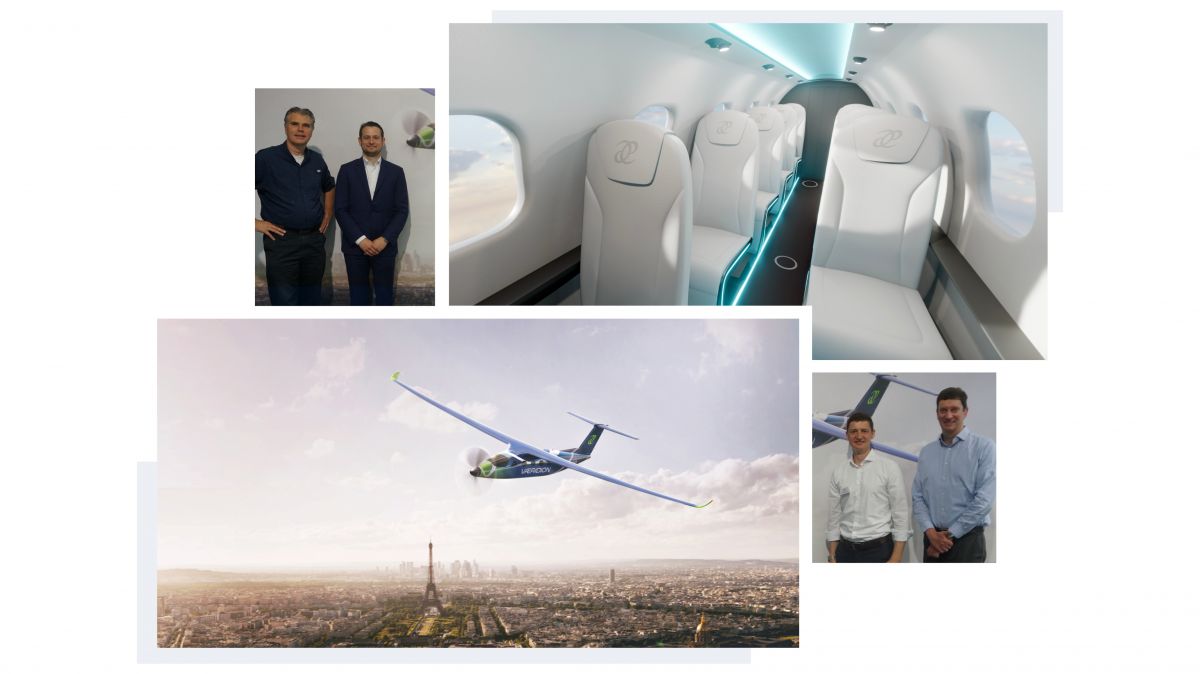
Azzera
